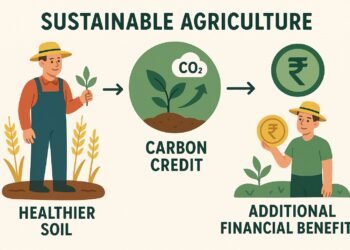The National Policy on Biofuels – 2018 was approved by the Union Cabinet, chaired by Prime Minister Narendra Modi. The policy aims to promote biofuels in India, considering the country’s heavy reliance on imported crude oil for domestic consumption.
Here are the key features and benefits of the policy:
Salient Features of National Policy on Biofuels – 2018
Categorization of Biofuels: The policy categorizes biofuels as “Basic Biofuels” (First Generation or 1G bioethanol & biodiesel) and “Advanced Biofuels” (Second Generation or 2G ethanol, Municipal Solid Waste or MSW to drop-in fuels, Third Generation or 3G biofuels, bio-CNG, etc.).
Raw Material Expansion: The policy expands the scope of raw material for ethanol production by allowing the use of Sugarcane Juice, Sugar Beet, Sweet Sorghum, Corn, Cassava, damaged food grains like wheat, broken rice, Rotten Potatoes, unfit for human consumption.
Surplus Food Grains: The policy allows the use of surplus food grains for ethanol production for blending with petrol.
Viability Gap Funding: The policy indicates a viability gap funding scheme for 2G ethanol Bio refineries of Rs.5000 crore in 6 years.
Supply Chain Mechanisms: The policy encourages setting up of supply chain mechanisms for biodiesel production from non-edible oilseeds, Used Cooking Oil, short gestation crops.
***
Expected Benefits
Reduce Import Dependency: One crore liters of E10 saves Rs.28 crore of forex at current rates.
Cleaner Environment: One crore liters of E-10 saves around 20,000 tons of CO2 emissions.
Health Benefits: Used Cooking Oil is a potential feedstock for biodiesel and its use for making biodiesel will prevent diversion of used cooking oil in the food industry.
MSW Management: There are technologies available which can convert waste/plastic, MSW to drop-in fuels.
National Policy on Biofuels – 2018 is aimed at achieving 20% blending of biofuels with fossil-based fuels by 2030.
The policy intends to ensure the adequate and sustained availability of domestic feedstock for biofuel production, increase farmers’ income, reduce import, generate employment, and create wealth from waste.
Also Read
(India CSR)




















